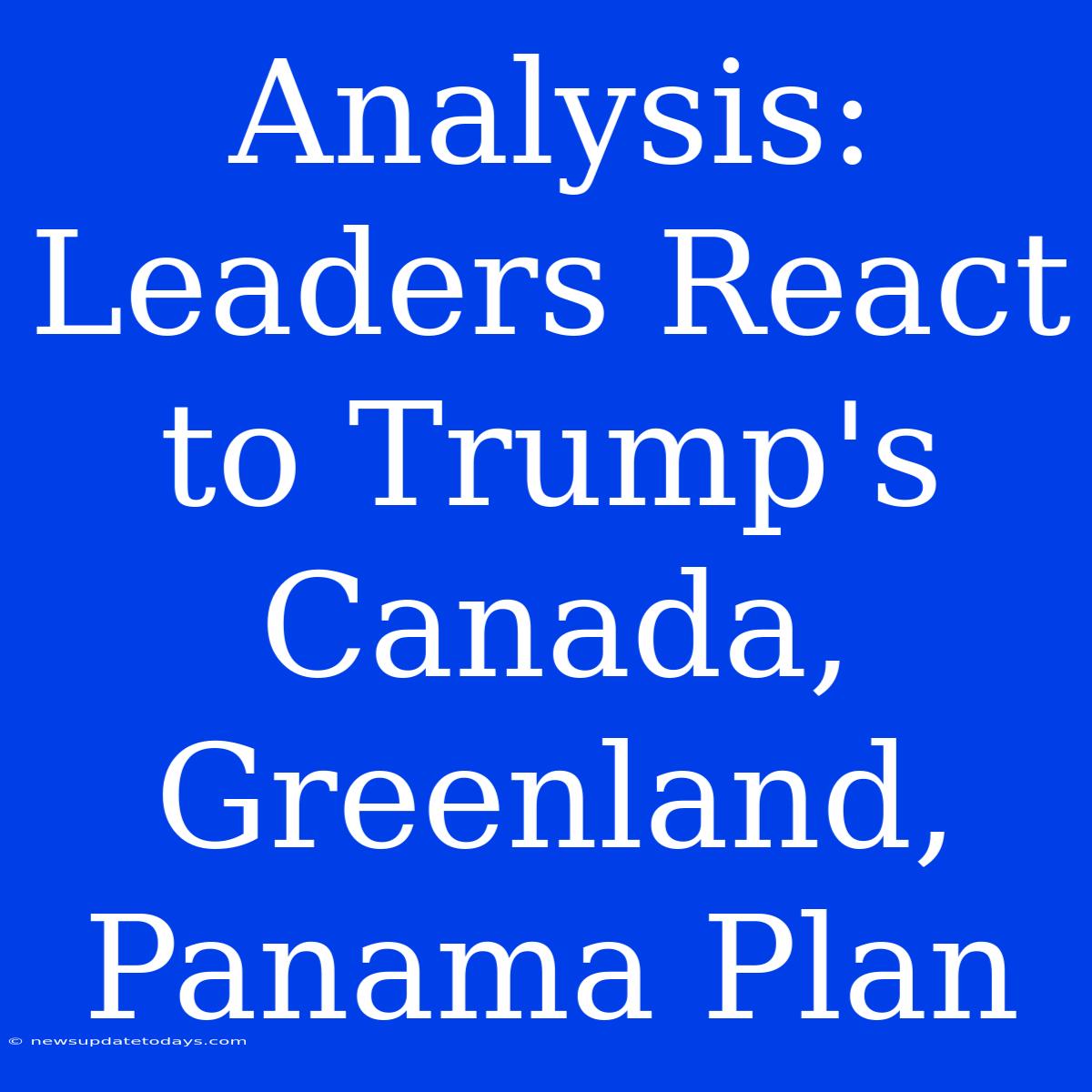Trump's Bold Land Grab: Global Reactions to the Proposed Canada, Greenland, and Panama Acquisitions
Donald Trump's surprise announcement regarding potential acquisitions of Canada, Greenland, and Panama sent shockwaves through the global political landscape. This audacious plan, met with a mixture of disbelief, outrage, and cautious observation, has ignited intense debate and speculation about its feasibility and implications. This analysis delves into the varied reactions from world leaders and explores the potential consequences of such a dramatic geopolitical shift.
Initial Responses: A Chorus of Skepticism
The initial response from most world leaders was one of profound skepticism. Canadian Prime Minister Justin Trudeau, while maintaining a diplomatic tone, firmly rejected any notion of Canadian annexation. His statement emphasized Canada's sovereignty and its commitment to its independent democratic institutions. Similarly, Greenland's Prime Minister, Kim Kielsen, dismissed the proposal as unrealistic and disrespectful to Greenland's self-determination. Panama, likewise, responded with a clear assertion of its national independence and its existing strong relationship with the United States, yet stopped short of explicitly condemning the proposal.
Beyond the Initial Shock: Deeper Analysis of Reactions
The initial shock gave way to a more nuanced analysis of the potential motives behind Trump's announcement. Many international relations experts suggest the plan, however improbable, served as a strategic maneuver. Some posit it was a negotiating tactic aimed at pressuring Canada and Greenland on trade deals or other policy matters. Others believe it was a calculated move to distract from domestic political turmoil or garner attention from international media.
International Law and the Feasibility of Annexation
The legality of such a large-scale territorial acquisition is highly questionable under international law. The principle of self-determination, enshrined in the UN Charter, firmly establishes the right of nations to govern themselves without external interference. Any attempt to annex sovereign nations without their consent would be a clear violation of international law and would likely face significant condemnation from the international community. The potential for sanctions and international isolation would be substantial.
Long-Term Implications: Geopolitical Instability and Economic Uncertainty
The potential consequences of such a move extend far beyond legal considerations. The economic ramifications would be immense, impacting global trade, financial markets, and supply chains. Furthermore, the geopolitical ramifications could be equally destabilizing, potentially triggering a new era of international tension and conflict. Existing alliances could fracture, and new power dynamics could emerge, creating significant uncertainty for the global order.
Conclusion: A Tempest in a Teapot or a Warning Sign?
While the immediate likelihood of Trump’s plan succeeding remains extremely low, the proposal itself serves as a potent reminder of the fragility of international relations and the potential for unexpected shifts in the global landscape. The reactions from world leaders highlight the importance of respecting national sovereignty and upholding international law. The episode underscores the need for consistent and predictable foreign policy, a stark contrast to the unpredictable approach adopted in this instance. Whether it proves to be a mere political maneuver or a harbinger of a more aggressive foreign policy remains to be seen, and the world will be watching closely.

